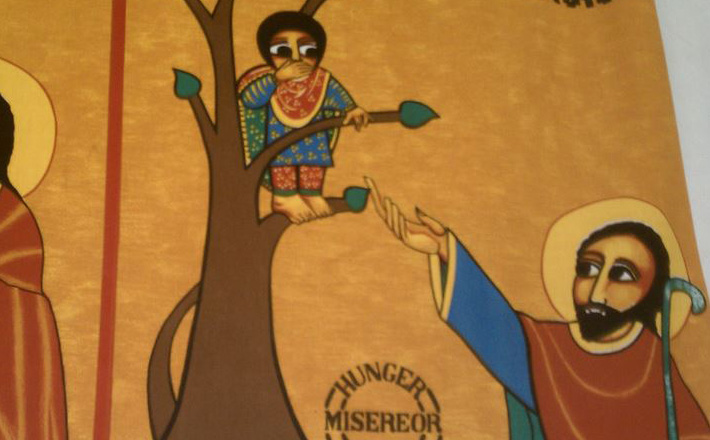Commentary on 2 Thessalonians 1:1-4, 11-12
When I was young, a cousin and I were pen pals for about four years.
And so it was I learned the now-rapidly-disappearing art of letter opening: “Dear cousin, Hi! How are you? I am fine.” And from there the letter progressed. That sense of formula always got me into the letter writing format, reminding me that the letter was not simply an update about myself but also should interact with my cousin’s prior letter where she gave her update and inquire about her continuing state.
Somehow, I don’t imagine that Paul needed to be reminded to care for the well being of his congregation. In fact, this letter, written so closely after 1 Thessalonians that the same three senders were still together, reveals Paul’s deep pastoral care for this congregation whom he’d had such a short time with. And Paul made good use of Greco-Roman letter format to highlight his particular concerns for each church to whom he wrote, and this letter is no different.
One thing to note that this particular selection of verses highlights is Paul’s consistent, near over-emphasis on their identity in God and Jesus. Verse one greets the church of the Thessalonians “in God our Father and the Lord Jesus Christ,” verse two gives the salutation, “Grace and peace to you from God the Father and our Lord Jesus Christ,” God is mentioned in every verse (3: “thank God for you”; 4: “among God’s churches”; and 11: “that our God may make you worthy), and finally, verse 12 concludes the whole opening section with the benediction that “the name of our Lord Jesus Christ may be glorified in you, and you in him, according to the grace of our God and the Lord Jesus Christ.” The greetings and prayer are entirely framed by this pairing of God the Father and the Lord Jesus Christ, such that it seems it was Paul’s intention to hammer home to this congregation their new identity, not as Roman citizens, not as Thessalonicans, but as people entirely defined by their relationship with God and Jesus.
Now, this point ought to be of particular interest to the preacher in this day, as the “us” versus “them” mentality is only increasing. Immigration reforms, terrorism fears, and racially motivated hate crimes only scratch the surface of the ways an “us-them” mentality is cultivated these days. It is particularly problematic when people in the church continue identifying themselves more on the basis of prior identity rather than their identity in Christ. It may be worth considering the emphasis Paul placed upon their nature in God and Christ, his concern to focus their attention on that identity — rather than as Romans or any other possible identification. In an important transit city (both land and sea), one’s social width becomes all the more significant — for business, for social status, and for worship. This group of fledgling Christians needed Paul’s reminder that they were no longer identified as under the emperor or any other ruler or nationality, but were one new people in and for God. It may be very worth hearing Paul’s challenge again, helping us move into identification as siblings “in God and Christ” first and foremost, rather than identifying ourselves primarily by race, gender, or sexuality. These markers are important, but first we ought to seek to support and love one another as brothers and sisters — even when we may disagree — rather than seeking to discredit another group because they aren’t “like us.”
But along with this constant reminder of their new identity, Paul also introduces several key themes that frame this passage. In verses three and four, Paul celebrates and boasts in the growth of their faith, a faith he actually writes this epistle to bolster. And then in verse 11 he states his prayer for them, that God might bring to fruition their works of faith to his glory. Faith has an outcome, based in our identity in God: as we believe we are in God and Christ, we begin to act like God and Christ, to the glory of God and Christ, and faith is the crucial intermediary that leads us on that journey.
And although faith frames the passage as something Paul is always concerned to encourage, Paul boasts not simply in their faith, but in their endurance, something particularly remarkable for this congregation that is facing persecution in a world hostile to their newfound identity. If I were writing to the church today, I think I might settle on endurance as one of the most undersold and underappreciated virtues of late. In a Saturday Night Live skit with Elijah Wood (January 27, 2012), a group of over-entitled young people demonstrated that they felt their every effort, no matter how small, ought to be celebrated. After one attempt at a ridiculous goal, Wood concluded the skit with the line, “I tried, so no one can criticize me!” His attempt, of course, was not followed up by any further attempts — each character was utterly pleased with one half-hearted attempt at something new, as though that was sufficient. As a parody of an entitled generation, it was damning. Attempting something new does not, in and of itself, count for much. Attempting something and continuing in it, to learn, to grow, to persevere through challenges, that counts; that is what Paul celebrates and encourages in his congregation, both in his boast of verse 4 and in his prayer in 11 that God would bring to fruition their desire for goodness, despite the hardships and persecution they face. Oh, that the church today would desire goodness and endure in that quest despite oppositions, while also holding to what Paul describes as an ever-increasing love for one another. Let us hold, unshaken, to our identity as siblings in God and Christ, loving one another, enduring in faith, empowered by God and Christ to His glory. Only thus can we transform the world.


November 3, 2013